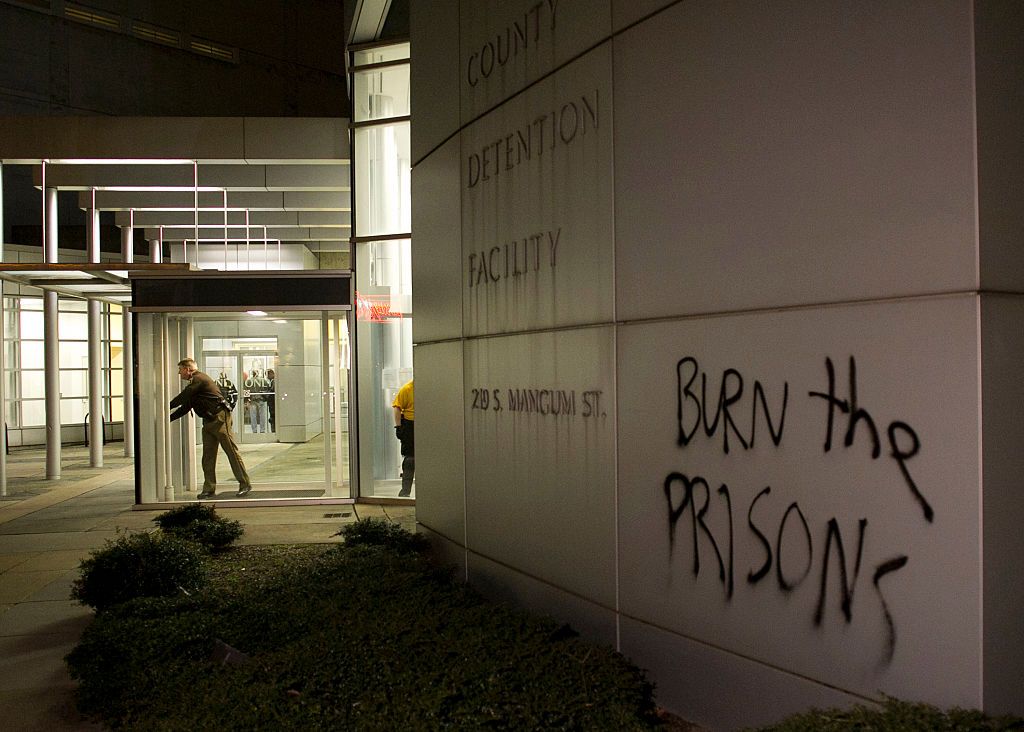Justice For Brittany Kittrell: Black Mother’s Suspicious In-Custody Death Reignites Cash Bail Debate
The recent in-custody death of a Black mother of three in North Carolina has prompted more questions than answers and reignited the debate around cash bail, which critics say criminalizes people based on socio-economic status.
Brittany Kittrell died in a hospital on Jan. 19, four days after she was arrested on several charges and held on a secured bond. Her death came nearly two years after Durham judges were ordered to adhere to a new policy that “de-emphasizes” cash bail and provides for other ways to guarantee subsequent court appearances.
1/6 Another Black woman was kidnapped and held by the state, which resulted in her death. On January 19, Brittany Kittrell died 4 days after being arrested and placed in Durham County Jail on a $5000 bond. #DurhamCountyJailKills #BrittanyKittrell #SayHerName pic.twitter.com/uZ8951FPkx
— BYP100 (@byp100) January 25, 2021
Kittrell, 34, was arrested and booked for the charges of breaking and entering to terrorize or injure, robbery with a dangerous weapon, common law-false imprisonment and felony possession of cocaine, according to the Durham County Sheriff’s Office. Despite how serious those charges are, her bail was just $5,000, suggesting the judge may not have seen her alleged offenses as being severe enough to impose a higher amount.
Days later, police took her to the hospital for what they would only describe as “medical treatment.” She died that same day.
More than a week later, Kittrell’s cause of death remains a mystery. The Durham County Sheriff’s Office said in its one and only press release about the death that the local medical examiner will announce the results when they’re available.
That’s unacceptable to Kittrell’s sister, who is demanding answers.
“How did she die?” Terraye Morris asked during a recent interview with local news outlet Indy Week. “We just want an autopsy. She died in jail. Anything could have happened. No one is telling us the cause.”
Morris said her estranged sister had struggled with drug addiction and only had one prior offense on her criminal record from a decade earlier. Phone calls by Kittrell’s family to the local medical examiner’s office have not been returned, Morris said.
Indy Week reported that the family has only been told limited information: “Kittrell collapsed while going into a pod at the detention center. She was rushed to Duke Hospital and went into cardiac arrest. Medical officials spent two hours trying to resuscitate her.”
That’s all they know.
Durham County revamped its policy on bail nearly two years ago that, had Kittrell’s judge heeded its recommendations, may have saved her life. Judges were instructed in March 2019 to consider “other options such as unsecured bonds, written promises to appear in court and electronic monitoring” before imposing cash bail, the News & Observer reported.
“That should be the first method of release, and if some reason a defendant doesn’t qualify, then a more secure form of bond is allowed,” Senior Resident Superior Court Judge Orlando Hudson said at the time. “Cash bonds is an option, but we don’t recommend judges use cash bond, and that is clearly spelled out in our guidelines.”
Local organizers have set up an online crowdfunding site to raise money to support Kitrell’s family and help pay the bail of other suspects in the Durham County Detention Center.
It’s been firmly established how the cash bail system can literally kill people. Further, Black people have long been disproportionate victims of the cash bail system. Nationally, Blacks get detained in jail at nearly five times the rate as whites. Moreover, Black people aged 18 to 29 typically receive significantly higher bail amounts than other defendants, like the parade of white supremacists who have avoided any bail at all following their participation in the treasonous insurrection and attempted coup at the U.S. Capitol just this month.
Sandra Bland, for example, was a motorist who Texas officials say died by suicide in jail after being arrested following a traffic stop centered on how she changed lanes in 2015. She was being held on $500 cash bail at the time of her suspicious death.
Similarly egregious, the NYPD in 2010 wrongly arrested and jailed 16-year-old Kalief Browder at the infamous Rikers Island corrections facility over an unproven accusation of stealing a backpack from another teenager. Browder’s family couldn’t afford bail, forcing him to spend three years at the notorious jail, where he endured beatings from prison guards and inmates, as well as 400 days in solitary confinement. Charges against Browder, who always maintained his innocence, were eventually dropped. Authorities released him from jail, but he was a physically and psychologically damaged young man. On June 6, 2015, Browder hanged himself with an air conditioning cord at his home. He was only 22.
Activists have long been pushing for bail and pretrial reforms across the nation and some progressive local governments were instituting reforms. In Atlanta, for example, Mayor Keisha Lance Bottoms signed an ordinance in 2018 that eliminated cash bonds for release from the City of Atlanta Detention Center.
The movement received a major boost that same year through a federal appeals court decision that upheld the constitutionality of a New Jersey law that reformed the state’s bail system. At the same time, the ruling provided a court-approved reform model that other states could follow.
In the New Jersey ruling, judges acknowledged that the state instituted the reforms to address inequalities—also found in other states—that kept poor people behind bars for nearly a year on average while awaiting a hearing because they couldn’t afford to pay bail of $2,500 or less.
Durham County’s cash bail policy was updated one year later, but it was not applied to Brittany Kittrell.
This is America.
SEE ALSO:
How The Cash Bail System Can Literally Kill You
Another White Supremacist Avoids Bail After Storming The U.S. Capitol
[ione_media_gallery id=”3852640″ overlay=”true”]

